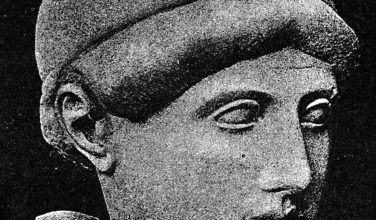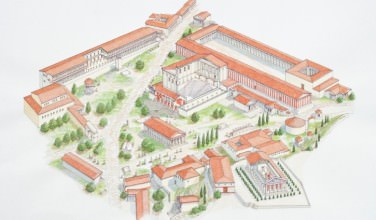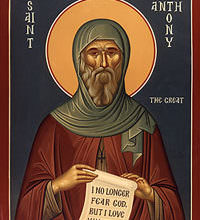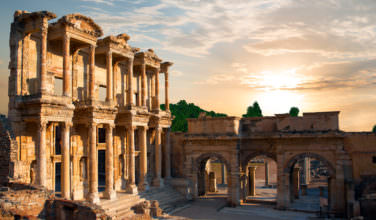Role of the Sacred Band of 1821 During the Greek War of Independence
Comments Off on Role of the Sacred Band of 1821 During the Greek War of Independence
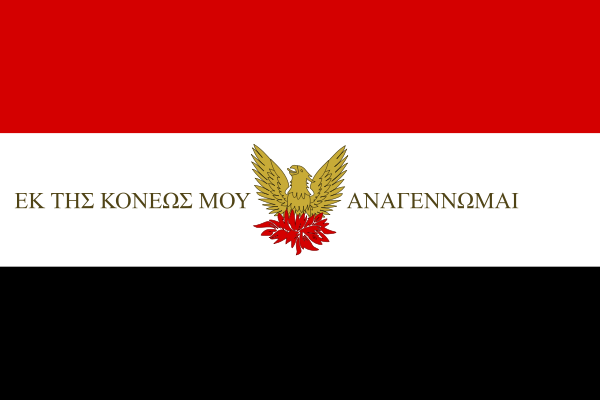 After roughly four hundred years of occupation by the Ottoman Empire, the Greek people had finally had enough. At various times during the Ottoman occupation, resistance movements did rise up. However, up until March 25, 1821, the efforts never gained momentum.
After roughly four hundred years of occupation by the Ottoman Empire, the Greek people had finally had enough. At various times during the Ottoman occupation, resistance movements did rise up. However, up until March 25, 1821, the efforts never gained momentum.
However, there was something different about 1821. This time, the Greek people had a secret society that unified their fight for independence, and this secret society had also built an army. As it turns out this is the sequence of events that eventually resulted in Greek Independence.
Here’s more information about the Sacred Band of 1821 – the army that was built by the Filiki Eteria, the secret society of Greeks that helped them finally achieve their independence:
Filiki Eteria
The Filiki Eteria, which means Society of Friends when translated into English, was formed on September 14, 1814 by Nikolaos Skoufas, Emmanuil Xanthos, and Athanasios Tsakalov in Wallachia, which is part of modern Romania, to give the Greek people a unifying voice when it came to fighting against the Ottoman Empire’s foreign occupation of Greece. The initial members were selective about who they let into their society, but over time, their membership grew to a fairly large number. The initial three members were also members of other societies, which enabled them to spread word about the Filiki Eteria’s overall mission.
New Leadership
When founding leader Nikolaos Skoufas passed away, the society appointed a new leader. Under Alexander Ypsilantis’ leadership, the society began building its army. Alexander Ypsilantis had a strong military background and was a veteran of the Russo-Turkish War of 1805. Already a member of the Filiki Eteria, he accepted his new role as its leader and began to make plans to truly liberate Greece from the Ottomans.
Sacred Band
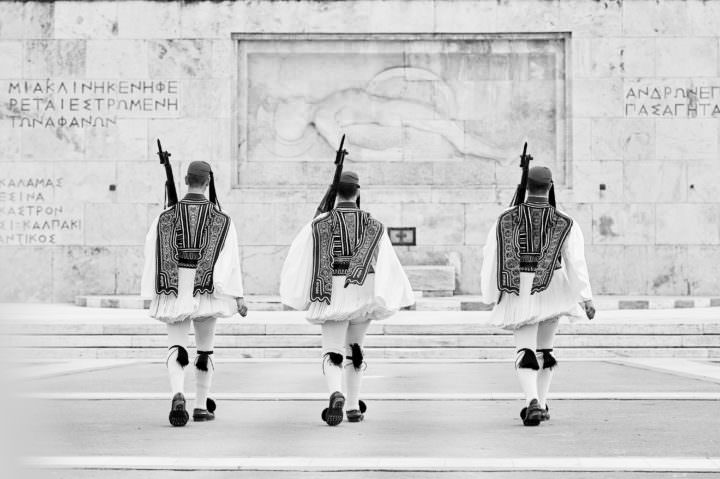 Under his leadership, the Filiki Eteria began to grow. He used his military knowledge to help him build the Sacred Band, the army that was under the support of the Filiki Eteria. The Band was made up of volunteers that were located in Moldavia, Wallachia, and Odessa. The volunteers were trained to become proper soldiers and were also required to take an oath. Georgios Kantakouzinos was the commander of the band, and Athanasios Tsakalo, one of the Filiki Eteria’s founding members, was the second in comment.
Under his leadership, the Filiki Eteria began to grow. He used his military knowledge to help him build the Sacred Band, the army that was under the support of the Filiki Eteria. The Band was made up of volunteers that were located in Moldavia, Wallachia, and Odessa. The volunteers were trained to become proper soldiers and were also required to take an oath. Georgios Kantakouzinos was the commander of the band, and Athanasios Tsakalo, one of the Filiki Eteria’s founding members, was the second in comment.
The people who joined this band were bound by this oath to fight for the greater cause of liberating Greece. Here’s an English translation of the oath:
As a Christian orthodox and son of the Catholic church, I swear in the name of our Lord Jesus Christ and the Holy Trinity to be loyal to my Country and my Religion. I swear to be united with all my brothers for the freedom of our Country. I swear to bleed until death for my Religion and my Country. To kill my own brother if he is a traitor of our Country. To submit to our Country’s leader. To not retreat if I don’t repel the enemy of my Country and Religion. To fight when my Leader campaigns against the tyrants and to invite my friends to follow me. To hate and despise my enemies. To not give up until I see my Country free and my enemies dead. To spill my blood so that I can beat the enemies of my Religion or to die as a martyr for Jesus Christ. I swear in the name of Holy Communion that I will deprive her if I don’t execute all of the promises that I gave in front of our Lord Jesus Christ.
The Sacred Band was generally considered a failure. In their most well known battle, the Battle of Drăgășani, the Band suffered a lot of casualties. However, their heroism and devotion to the cause of liberating Greece provided some much needed inspiration to those who were also fighting for the cause. Eventually, the nation was liberated from Ottoman Occupation and the devotion of the Sacred Band to that cause will always be remembered.
Sources:
Wikipedia – Greek War of Independence
Wikipedia – Alexander Ypsilantis
Categorized in: Modern Greek History
This post was written by Greek Boston


